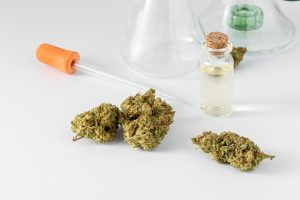Exploring HHC and Delta-9 THC:
As you navigate the world of hemp-derived cannabinoids with psychoactive properties, you may have encountered HHC and wondered about its merits. Join us as we dive into a detailed comparison of this popular cannabinoid and Delta-9 THC, so you can choose the best fit for your needs.
While you may be familiar with hemp-derived CBD and THC, terms like HHC (Hexahydrocannabinol) may be new to you. These compounds are naturally occurring within cannabinoid products and share similar molecular structures found in the cannabis plant.
Delta-9 THC binds well to CB1 receptors and loosely to CB2 receptors, while HHC may exhibit strong binding to both. This unique property makes products like HHC GUMMIES a reliable option for relief.
Both D9 and HHC are present in low amounts in hemp plants and can induce mellow and euphoric effects, although HHC’s effects are often described as less potent but longer-lasting.
It’s important to note that unlike Delta-9, HHC is a hexahydrocannabinol, not a tetrahydrocannabinol, leading to distinct effects due to their unique molecular structures.
What Is HHC?
HHC, also known as Hexahydrocannabinol, is a naturally occurring cannabinoid in hemp plants but is less common than D8 THC. It is most abundant when CBD undergoes CO2 extraction, converting into Delta 9 through isomerization, followed by hydrogenation to form HHC.
Psychoactive cannabinoids like HHC lack a carbon double bond and may offer advantages over related cannabinoids like Delta-8/9 THC, although they are generally less potent.
Both HHC and Delta-9 THC bind to CB1 receptors in the endocannabinoid system, leading to changes in mood, perception, or thinking, often referred to as a “high.”
What Is Delta-9 THC?
Delta-9 THC is a psychoactive substance found in cannabis, known for inducing a sense of euphoria and well-being. It interacts with the endocannabinoid system’s CB1/CB2 receptors, offering a range of effects such as stress relief, physical tension reduction, and improved sleep cycles.
Comparing Delta 9 and HHC Differences:
Potency: Delta-9 THC generally offers stronger effects compared to HHC, although HHC’s effects may last longer, promoting relaxation after a long day.
Chemical Structure: While both Delta-9 THC and HHC share similar chemical makeups, their unique bonding and interaction mechanisms result in distinct effects and sensations.
Effects: Both cannabinoids can enhance mood, creativity, and relaxation, with Delta-9 THC typically delivering more intense euphoria compared to HHC.
Legal Status: HHC is legal when derived from hemp plants containing less than 0.03% THC by volume, in compliance with the 2018 Farm Bill. Delta-9 THC’s legality varies by state and is subject to THC concentration regulations.
Availability: Products combining HHC and Delta-9 THC are increasingly popular and accessible, offering legal relief under the 2018 Farm Bill.
Benefits of HHC and Delta-9 THC:
Both cannabinoids offer potential therapeutic effects such as stress reduction, relaxation, and improved sleep quality, with HHC providing a clearer mental state compared to Delta-9 THC’s psychoactive effects.
HHC and Delta-9 THC products are federally legal when derived from hemp plants, providing a natural remedy for daily stress with minimal risks and side effects.
Consumers can choose from various consumption methods, including edibles and vape pens, to experience the benefits of HHC and Delta-9 THC, ensuring flexibility and convenience.
Conclusion:
From Delta 9 THC gummies to HHC products, the cannabis industry offers a diverse range of psychoactive compounds derived from hemp. Whether you seek relief or recreational enjoyment, products like D9 Gummies provide innovative solutions for wellness and relaxation.






